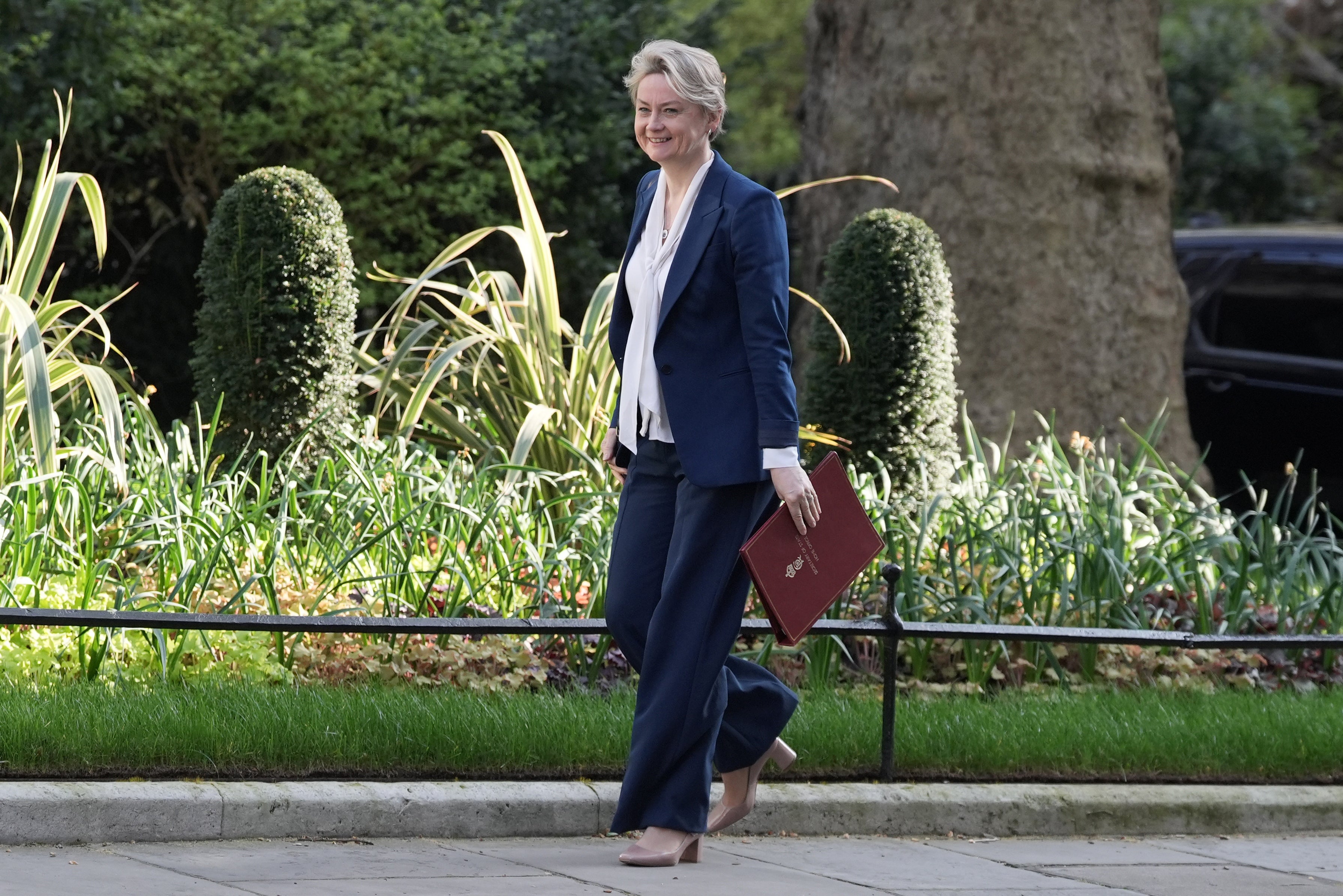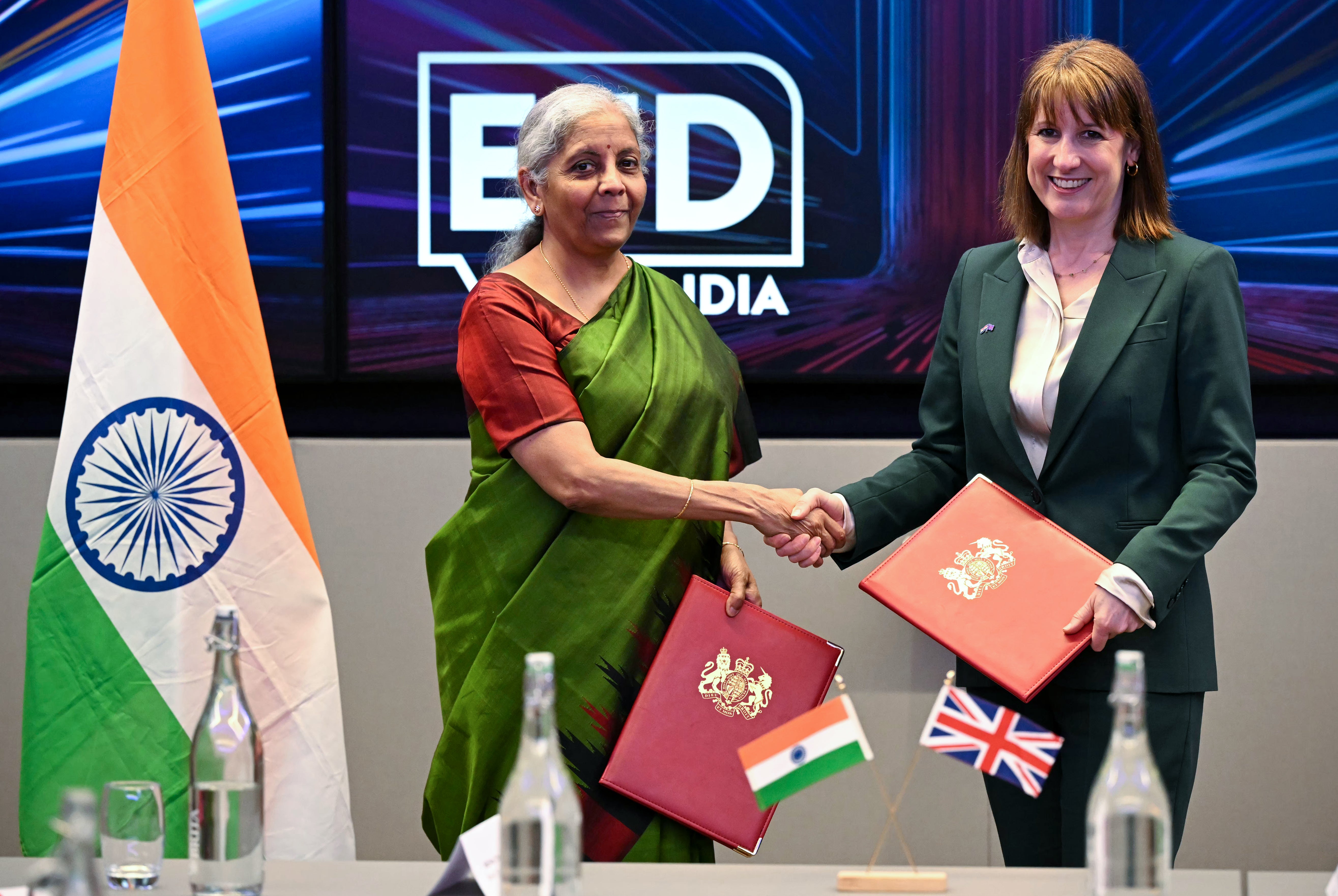UK markets have begun to rebound after Donald Trump announced a 90-day pause in his sweeping tariffs, though ministers insisted they would remain cautious in the face of instability.
The FTSE 100 rose by more than 6% after stock markets opened in London on Thursday.
This followed a significant rally for markets in the US and Asia, after President Trump said he would be delaying tariffs on most nations for 90 days while raising his tax rate on Chinese imports to 125%.
Amid the rising market confidence, senior Cabinet minister Yvette Cooper continued to urge caution.
The Home Secretary told Sky News: “We are seeing changes all the time. We are seeing quite a lot of global instability.
“We are seeing that in the economy, we are seeing it also on security, on defence issues.
“But I think that just comes back to the approach that we have taken – it’s the plan for change the Prime Minister’s set out, maintaining that stability in the face of the different turbulences.
“We are not keeping a running commentary on different trade negotiations, on the different approaches that other governments are taking.”

She added: “What we are doing is just being really steady about this. We have made clear our principles and our approach. We want to see a reduction of trade barriers and we want to negotiate good arrangements that are in the UK’s interests.”
While the FTSE has rebounded following its downturn in earlier days, the index of the UK’s top stocks is still far below where it was in the days before Mr Trump’s tariffs came into force.
The US pause has not completely eliminated taxes on goods into America, with all countries now expected to pay a 10% levy, instead of the reciprocal rates Mr Trump’s administration had originally set out.
Some of America’s trading partners had threatened retaliatory action before the pause, like the EU, which had voted to impose countermeasures on some US goods.
The UK had been spared higher tariffs rates hitting others and had resisted retaliatory action.
Other countries now find themselves in the same situation as the UK, which was already required to pay the 10% tariff rate.
Imports of cars, steel and aluminium to the US are all still subject to a 25% tariff.

A Downing Street source said the development shows that “cool and calm can pay off” and that the way Sir Keir Starmer “does business” is the “right approach”.
Despite the changes to Mr Trump’s tariff regime, economists remain concerned that the prolonged uncertainty over his policy will hold back growth around the world.
Ministers still hope an economic agreement with Washington can be reached to soften the blow of some of Mr Trump’s tariffs.
Chancellor Rachel Reeves will seek to negotiate with the US when she visits Washington at the end of April for the International Monetary Fund’s spring meeting of global finance ministers, she told the Financial Times.
She also said a UK-EU summit on May 19 would be a chance “to refresh our relationship and make it easier for businesses to trade”.
Kemi Badenoch, meanwhile, called on the Prime Minister to “convene” the members of a trans-Pacific trading agreement to discuss ways to mitigate the impact of US tariffs.
The Conservative leader told BBC Breakfast: “When I was trade secretary we signed the biggest post-Brexit deal, CPTPP (Comprehensive and Progressive Agreement for Trans-Pacific Partnership), with countries like Mexico, Canada, Australia, Japan.
“All those countries are feeling the brunt of US tariffs.
“What I would be doing if I was prime minister is convening those countries to see what we can do to make life easier for the citizens of our various countries.
“It’s always about making life better for people, reducing the cost of living. That can happen.”
UK will continue negotiations ‘coolly and calmly’ as Trump pauses some tariffs
UK will continue negotiations ‘coolly and calmly’ as Trump pauses some tariffs
UK-US deal or eased tariffs ‘won’t be enough’, Starmer warns
Supermarket price war heats up as Tesco cites ‘very competitive market’
FTSE 100 soars as relief rally washes over global markets after tariff pause
Manufacturer TT Electronics warns over profit hit from US tariffs







